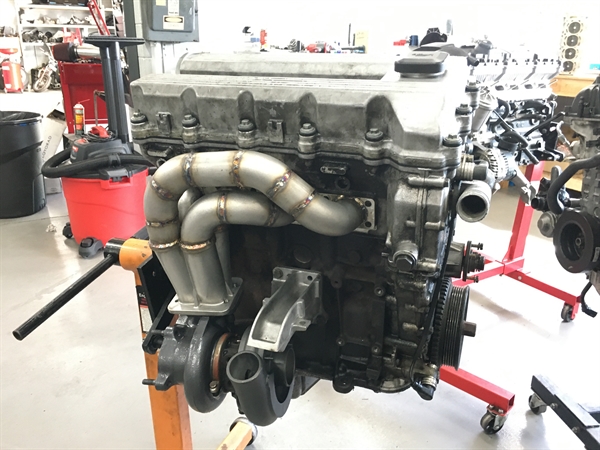Updating Your BMW 318ti: Top Mods and Enhancements
Updating Your BMW 318ti: Top Mods and Enhancements
Blog Article
Important Factors To Consider for Selecting the most effective Engine for Your Needs
In the world of selecting the suitable engine to satisfy your needs, numerous critical elements need precise factor to consider to make certain optimum efficiency and efficiency. From the nuanced balance in between power and efficiency to the often-overlooked facets of maintenance and service demands, each aspect plays a crucial function in identifying the most ideal engine for your details demands.
Power and Performance
When assessing engines for optimum efficiency, it is critical to focus on both power output and effectiveness. Power outcome determines the capacity of an engine to generate energy, which directly impacts its efficiency. A high power result is necessary for requiring jobs such as heavy-duty applications or high-speed requirements. It ensures that the engine can handle the work properly and efficiently. Power alone is not sufficient; performance plays a considerable function in determining the general efficiency of an engine. Effectiveness describes how well the engine transforms gas right into usable energy. An extra reliable engine will deliver better mileage, lower exhausts, and decreased operating expense. Striking the ideal balance between power outcome and efficiency is vital to selecting an engine that meets your details demands. It is crucial to consider variables such as the intended use of the engine, environmental impact, and lasting cost implications when making this decision. By carefully reviewing both power and performance, you can choose an engine that supplies ideal efficiency and meets your needs properly.
Gas Performance and Economic Climate
Gas efficiency refers to the engine's ability to convert gas into power with minimal waste, straight affecting operating prices and ecological sustainability. Engines with greater gas effectiveness not just reduce gas costs but additionally lower carbon exhausts, adding to a greener procedure.

Compatibility and Application
Taking into consideration the fuel performance and economic situation of an engine, the following vital aspect to address is its compatibility and application within particular functional contexts. Compatibility describes exactly how well the engine integrates with the total system or tools it powers. It entails elements such as physical measurements, placing alternatives, electrical interfaces, and control systems. Making certain compatibility is necessary to avoid concerns such as overheating, resonances, or power imbalances (bmw 318ti).
Additionally, the application of the engine is equally vital. Various engines are designed for certain objectives, whether it be industrial machinery, marine vessels, automobiles, or power generators. Recognizing the intended application enables the selection of an engine that can provide the needed power output, torque, and operational qualities. For circumstances, a high-revving engine made for performance vehicles would not be suitable for sturdy construction equipment that calls for high torque at low you could try this out rates.
Maintenance and Solution Requirements
Maintenance and solution needs play a crucial function in making sure the longevity and optimum performance of an engine. Regular upkeep is necessary to avoid malfunctions, prolong the life expectancy of the click over here now engine, and preserve its efficiency. When selecting an engine, it is very important to take into consideration the maker's recommended maintenance schedule and the accessibility of solution centers or certified service technicians.
Variables such as the regularity of oil modifications, filter replacements, and overall assessments can substantially impact the engine's performance. Some engines may require even more regular maintenance based on their design and use, while others might have longer periods in between maintenance checks. It is important to abide by these solution requirements to avoid expensive repair work and unanticipated downtime.

Price and Budget Plan Considerations
When choosing an engine for a specific application,Budget restrictions frequently play a significant role in the decision-making process. When thinking about the expense and budget implications of picking an engine, it is vital to assess not just the initial purchase price but likewise the lasting expenses connected with upkeep, fuel usage, and potential upgrades or repair work. It is vital to strike an equilibrium in between the ahead of time price of the visit engine and its overall lifecycle costs to make sure that the picked engine stays monetarily sustainable throughout its operational life-span.
Aspects such as gas durability, efficiency, and reliability can straight impact the total expense of ownership of an engine. While a much more costly engine may have higher upfront expenses, it could potentially result in lower maintenance and fuel expenses over time, thus offering far better value in the long run.
Verdict

Fuel efficiency refers to the engine's capability to transform gas right into power with minimal waste, straight impacting operating prices and ecological sustainability.Elements affecting fuel efficiency include engine layout, combustion efficiency, and overall efficiency optimization. Furthermore, selecting the suitable fuel type and grade as advised by the engine manufacturer can even more boost effectiveness and prolong engine life expectancy.
Engines with good utility features and easily offered components can minimize upkeep expenses and reduce the time the engine is out of operation - bmw 318ti. It is important to strike a balance between the upfront price of the engine and its general lifecycle expenses to make sure that the chosen engine remains economically sustainable throughout its operational life-span
Report this page